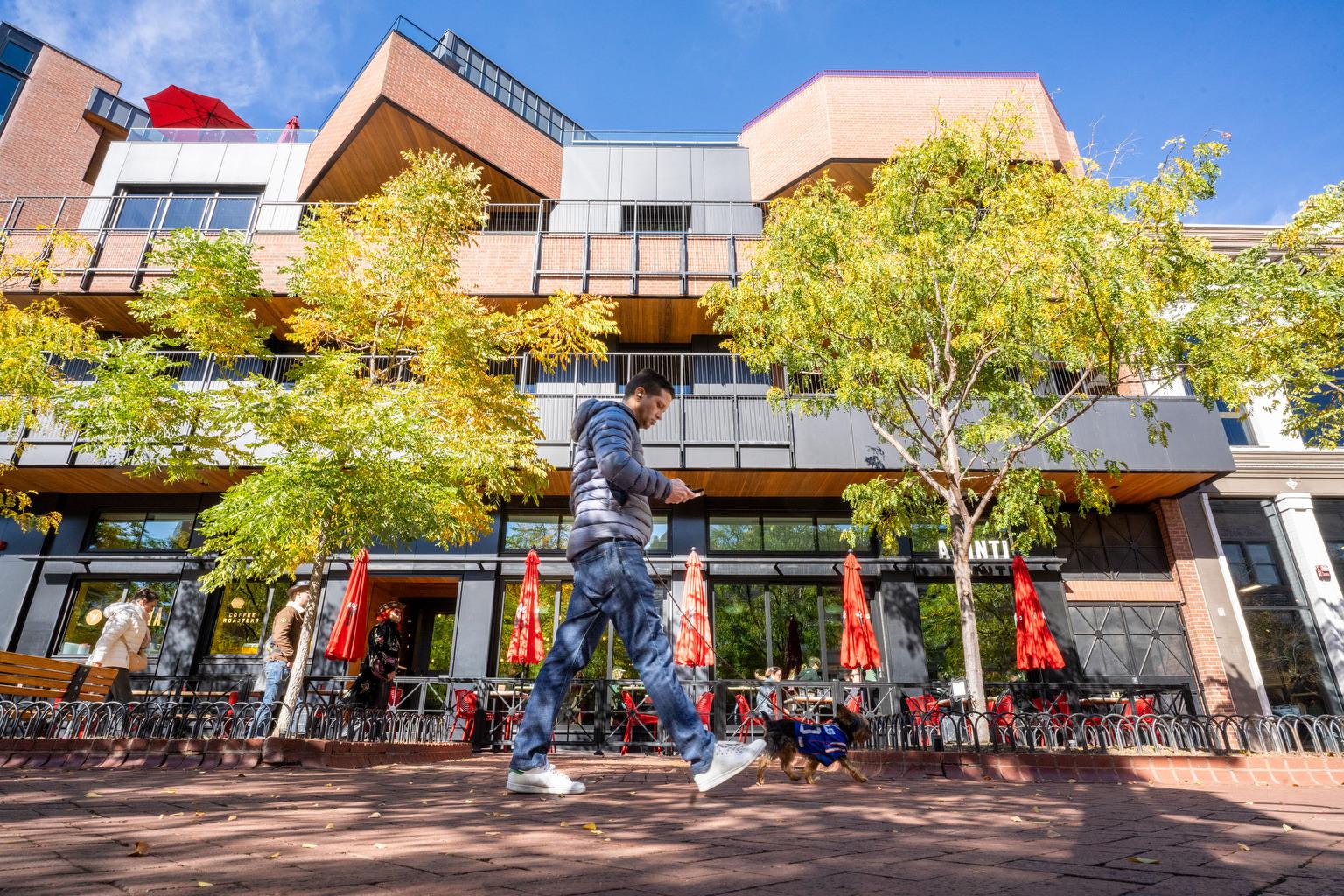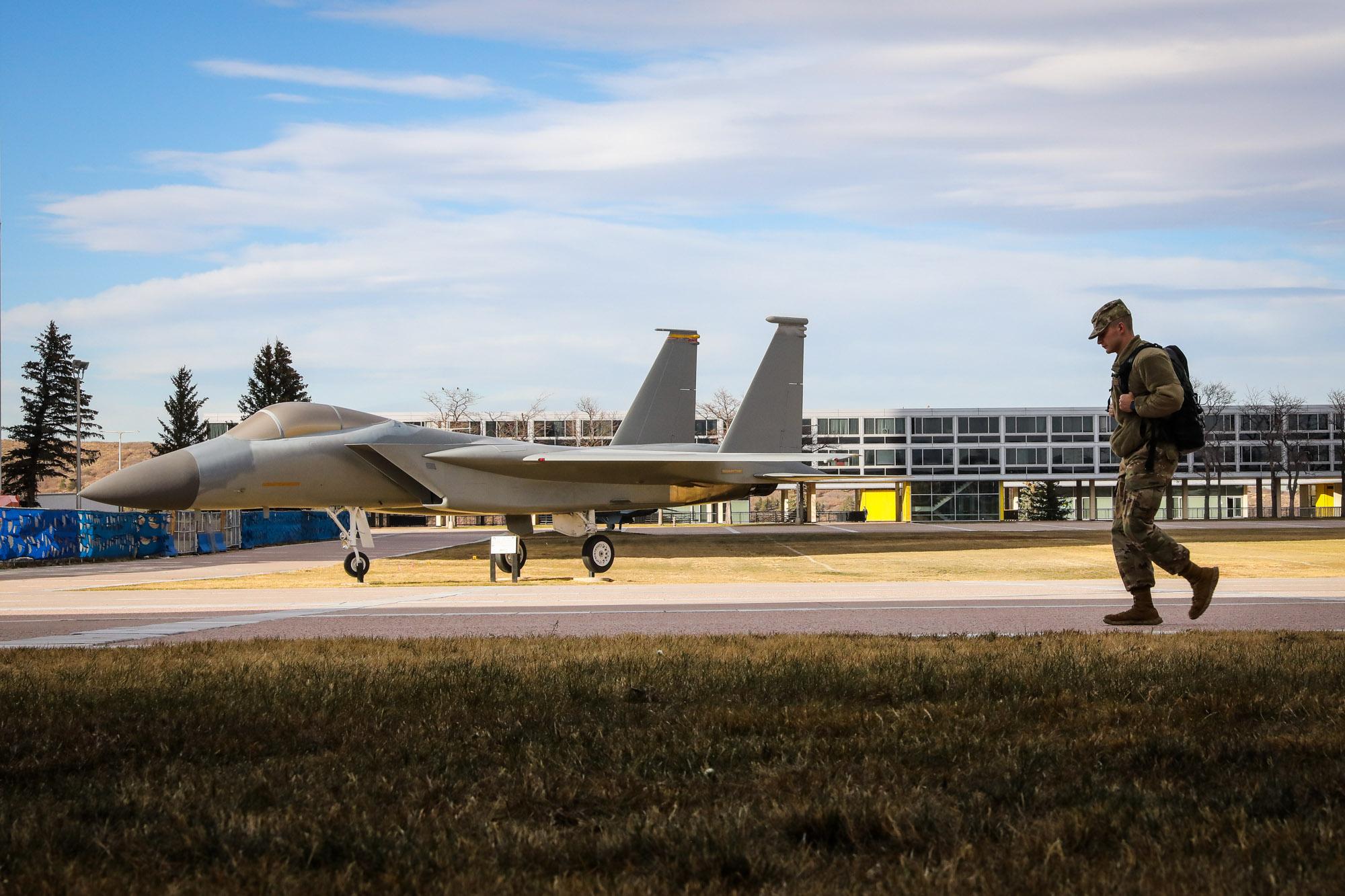In 2012, Brooklyn, N.Y.-based photographer Dirk Anschütz became a father. The shift in his life was enormous.
Anschütz was raised by a single mother. "I had never met my father, which was never a big deal," he says. But after his son Ray's birth, Anschütz says he didn't have a male parenting role model.
This led to a curiosity about how other dads were raising their kids; curiosity that resulted in a six-year portrait project called Fathers and Sons.
Anschütz began the project by photographing family members and close friends. It was important to Anschütz to show the personal relationships between the fathers and sons. As a result, he decided to only use first names. He intended for the project to be more art than journalism.
The first photo he made, and his favorite of the project, was of his girlfriend's brother-in-law and his son at a family reunion. The father, Matt, is an actor, and his son, Caleb, has a developmental disability. They connect through Matt's acting and movement exercises. As Caleb grew up in Annandale, Minn., and as they connected more, Matt started a nonprofit that provides art and acting education for people with developmental and cognitive disabilities.
The impact the son had on the father's life, and vice versa, was immediately striking to Anschütz. "I realized there was a lot of meat in that one picture," he says. "Just a lot of stuff you can think about."
Over the next six years, the project took Anschütz all over the United States. As he traveled, he sought out pairs of fathers and sons that expanded the idea of what the relationship can look like. "The project really got me looking at a lot of different aspects of society," he says. "There's a lot of change going on right now regarding what fatherhood means, what masculinity means."
Anschütz's portraits, taken together, help personify those expanding ideas of masculinity and fatherhood. On the more stereotypically masculine end of the spectrum, he photographed a professional wrestler wrestling with his son, to exemplify wrestling as a common father-son interaction. On the other end, he photographed a pair in which the father transitioned from male to female at 61 years old, to show how the relationship can still endure.
He photographed a father changing his infant son's diaper. "Now that's really not a big deal," Anschütz says. "Every dad I know does that. But when I think back to my childhood, very few dads would change their kids' diapers. And if they did, they probably wouldn't have allowed a photographer in the room."
Anschütz makes the images with a digital medium-format camera that contains a larger-than-normal image sensor. He lights them with natural light and auxiliary strobe lights. "I don't want to be a fly on the wall," he says. "It should be obvious that everybody works together on one of these portraits."
Some of the portraits are more formal, while others feature tender moments between the two subjects. "If you just have your equipment set up for a while, after a while the pair will just do their thing even with you and the camera present," he says.
In addition to producing a compelling body of work that helps showcase the expanding bounds of what fatherhood can look like, Anschütz says Fathers and Sons made him a more understanding dad. He describes his parenting style as "relaxed." He discovered that what constitutes good fatherhood can vary widely.
"How people grow up or raise their kids is often a consequence of their socioeconomic background or their cultural background," he says. "Some kids will have advantages that aren't there for kids that grew up under different circumstances."
Anschütz is now taking his fatherhood in stride, but it wasn't always that way. "When I was a young man, I didn't want to have kids, and later on I was ambivalent about it. But being a dad has really been a lot of fun," he says. "I hope I don't jinx it; it's been such a great ride so far."
Dirk Anschütz is a freelance photographer based in Brooklyn. Follow him on Instagram @dirkanschutz.
Cameron Pollack is a freelance photographer based in Boston. Follow him on Instagram and Twitter: @kcalloP.
9(MDEyMDcxNjYwMDEzNzc2MTQzNDNiY2I3ZA004))








